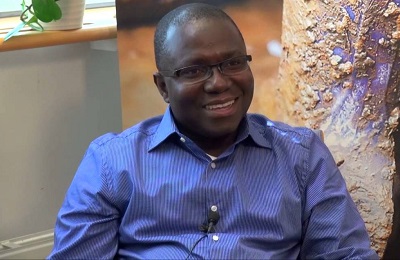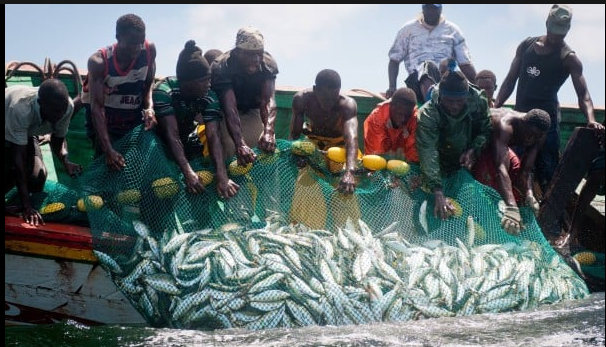
A Natural Resource Economist and Dean of the School of Research and Graduate Studies, Ghana Institute of Management and Public Administration (GIMPA), Professor Wisdom Akpalu, has expressed the belief that Ghana will derive more economic benefits from its biological natural resources than non-renewable resources such as gold, diamonds, and oil.
Asserting economically, he underlined that biological or renewable natural resources such as fish and timber offer more advantages in terms of their economic and environmental benefits to the state than mineral and other extractive resources.
He explained that whereas biological resources could replenish themselves within the shortest possible time when they are reasonably extracted, the same could not be said of non-renewable natural resources.
“These (biological) resources are extremely valuable to us and we need to manage them sustainably,” he noted.
Inaugural lecture
Prof. Akpalu, who was delivering his inaugural professorial lecture at the Graduate Block Auditorium at GIMPA on June 29, 2023, on the topic “The complexities of managing natural resources in developing countries” called on the government to institute prudent and sustainable management practices that will ensure that the country’s natural resources were used for the good of all citizens.
He observed that although many African countries have been blessed with abundant natural resources, the resources had rather become a curse for many of them, brewing environmental pollution, conflicts, corruption, and wars.
The lecture dealt with the complexities surrounding the management of natural resources in developing countries, both in theory and practice.
Additionally, the lecture also explored the various aspects of natural resources, including biophysical dynamics of natural resources management, conflicts and externalities arising from natural resource use, counterproductive incentives, and the importance of institutional quality.
Prof. Akpalu, who is also the Director of the Environment and Natural Resource Research Initiative (ENRRI – EfD Ghana), said many African countries, particularly those in the Sub-Saharan were still poor in spite of their abundant natural resources.
He expressed the concern that it was sad that Sub-Saharan Africa was still home to some of the world’s poorest countries, urging governments in the region to relook at how their natural resources were exploited and used.
“Africa is home to approximately 30 percent of the world’s mineral resources and boasts highly productive timer forests. However, it is paradoxical that these nations, including many African countries, often experience poverty and deprivation,” he explained.
Prof. Akpalu, however, said the mere presence of resource wealth does not automatically lead to socioeconomic growth and development unless rents from such resources were properly utilized for the general good of the people.
“The inefficiency in resource exploitation, the inadequate share of resource rents, and the failure to invest those rents in productive assets or capital are key factors contributing to this phenomenon,” he noted.
Benefits
He said for Africa to benefit from its natural resources utilization, there was the need to sequence how such resources are extracted, explaining that sequencing the extraction process of natural resources would enable the continent to decide how much of the resources should be taken at any given time.
Prof. Akpalu explained, for instance, that Africa loses about US$ 2.3 billion yearly in the fisheries sector due to activities linked to illegal, unreported, and unregulated (IUU) fishing (IUU), a situation he said, could be prevented through effective management and governance practices.
“If we manage our natural resources properly, we can make a headway,” he said, adding that “Ghana also loses US$200 annually due to IUU fishing.
Corruption
He said there was a need to strengthen institutions that had been mandated to manage natural resources, stressing that a lack of quality institutions to manage natural resources would result in corruption and inefficient management practices.
“There is so much corruption when it comes to the management of our natural resources,” Prof. Akpalu said, pointing out that political interference in the management of natural resources has left many African countries not benefiting from their natural resources.
He further expressed the concern that the weak bargaining power of Africa in terms of negotiating with external parties in the exploitation of their natural resources has brought little rent from such engagements to the continent.
Proper use of rents
Prof. Akpalu also called on African governments to invest the rents (profits) they get from their natural resources especially in non-renewable natural resources in other productive assets such as roads, schools, and hospitals so that future generations would also enjoy proceeds from the natural resources.
It said it would be wrong to invest rents from natural resources in consumables.
He has, therefore, called on African governments to encourage their nationals to go into the exploitation of natural resources as the involvement of the external investors has benefitted Africa very little.
Credit: Graphic Online







